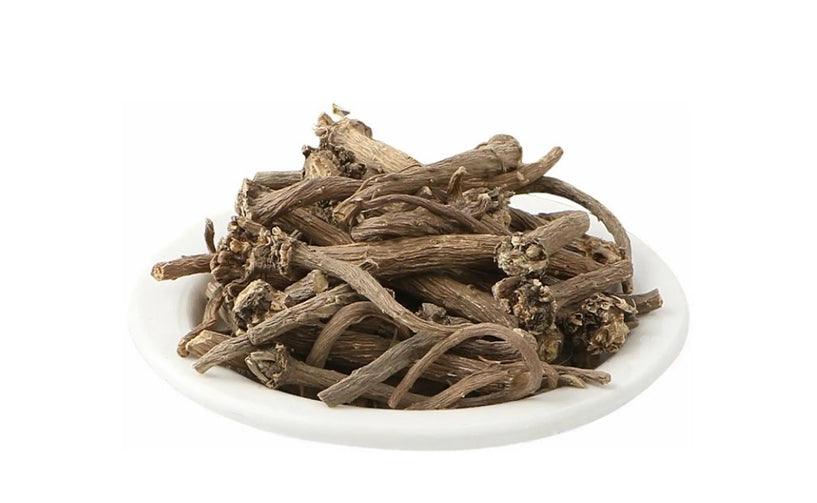Akarkara or Anacyclus pyrethrum is similar to Spanish chamomile in appearance and habitat. It belongs to the family Asteraceae or the family of sunflower. It is mostly grown in the Mediterranean region which includes Morocco, Spain, Algeria; Arabian countries; North America; North India especially, Bengal, and the Himalayas. It is a perennial plant and bears white flowers, with purplish tinge beneath yellow disk. The plant has dark green leaves. The roots of the plant are cylindrical and brown in colour with black spots on them. The roots are pungent in taste and odour.
Akarkara is a well-know herb in Ayurveda, Unani, Siddha and Herbal system of Medicine and has been used for centuries. The plant of Akarkara is ornamental and blooms in the spring season and is also consumed as a vegetable. It is a powerful antimicrobial agent. When chewed, it causes copious salivation. When roots are applied on the skin, they cause tingling sensation, redness and warmth and pacify vata and kapha.
Other names of Akarkara are Spanish Chamomile, Vajikaran Rasayana, Pellitory Root, and Pyrethrin.
The plant is widely used medicinal plant in Siddha healing practice and Ayurveda. It acts as a rejuvenating and healing herb with potential medicinal properties including potent antimicrobial, anti-depressant, anti-inflammatory, anti-diabetic, hepato-protective, anti-oxidant, anti-nociceptive, immuno-stimulant, anti-convulsant, and spermatogenic properties. It acts as a sialagogue i.e. it promotes the secretion of saliva.
The natural chemical composition of Akarkara is responsible for the medicinal effects it provides. Akarkara contains colourless and crystalline pyrethrin which is its main active ingredient. The other naturally present components include flavonoids, alkaloids, tannins, saponins, gums, volatile oils and 50 percent inulin. Powerful phenol derivatives and the alkaloids in the plant are responsible for the anti-nociceptive activity. N-isobutyldienediynamide (Pellitorine or Pyrethrine) and polysaccharides are the key phytoconstituents of the roots of Akarkara.
Benefits of Akarkara
-
Reduces Pain: It relieves pain and other symptoms related to rheumatoid arthritis, and thus the plant traditionally used as a remedy to treat sciatica, paralysis, neuralgia, cold, and rheumatism.
-
Beneficial for Nerves: It prevents hemiplegia and nerve disability if massaged regularly. It prevents facial neuralgia. It is a nerve-stimulant and thus helps to treat full and partial paralysis.
-
Works as Brain Tonic: Akarkara works as a brain tonic and improves memory. It helps in controlling epilepsy due to its neuroprotective and anticonvulsant properties.
-
Improves Immunity: It improves immunity and is helpful in reducing inflammation.
-
Promotes Secretion of Saliva: The roots are widely used to relieve toothache and promote secretion of saliva. Chewing them helps in avoiding dryness of the throat and mouth.
-
Improves Respiratory Health: The plant is used to treat chronic catarrh, pyorrhoea, common cold, headache, chronic cold, rhinitis, tonsillitis, sore throat and congestion.
-
Vajikaran Rasayana: It is classified as a Vajikaran Rasayana in Ayurvedic medicine system as it rejuvenates sexual health and enhances virility.
-
Improves Sexual Health: It works as an aphrodisiac and enhances libido, improves physical strength, enhances fertility and improves testosterone level.
-
Regulates Metabolism: It regulates metabolism and detoxify the body.
-
Improves Speech: It can be given to a child suffering from speech issues such as delayed speech and stammering.
- Improves Energy: It prevents vertigo, phobia, nervousness, and nausea and other symptoms caused by the general weakness.
The varied health benefits of Akarkara make it an useful ingredient in various Ayurvedic health supplements.






